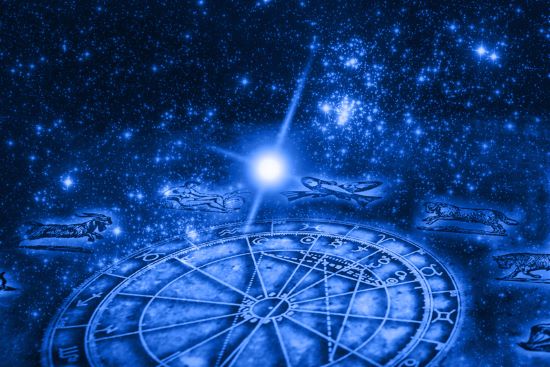With a resurgent COVID-19 pandemic, growing insecurity about humanity and the planet’s fate in the face of climate change, ongoing wars, and a restive political landscape, astrology, the belief that planetary positions and movement influence your life from birth, is enjoying notoriety in today’s pop culture and on social media.
I admit that my curiosity often leads me to read the daily horoscope in my newspaper. Written in ways that allow for multiple interpretations, it sometimes appears to fit my circumstances, but then I read other sign predictions and see affinities in them as well.
I’m an early January baby which in the Western world of horoscope predictions makes me a Capricorn, represented by its sign animal, the goat which appears in the night sky as a constellation that vaguely resembles the animal when you connect the points of light.
Capricorn’s prominence in early winter night skies and other constellations through the year, along with the movement of the Solar System’s planets, are food for astrologers to make predictions.
Like the seers, oracles, soothsayers of the past and Tarot card readers in the present, astrology origins date back 5,000 years in the Middle East. The Babylonians, some 3,700 years ago gave us the 12 constellation names and signs eventually adopted by the Greeks and still used in the West today. Chinese astrology’s origins date back 3,000 years but use a 12-year cycle versus the West’s 12-month cycle. That fortune cookie you break open contains astrology and a shell you can eat.
For the Chinese who believe in astrology, 2024 is the Year of the Dragon and 2025 will be the Year of the Snake. Born in the Year of the Dragon and you may be arrogant. Born in the Year of the Snake, you may be calm, creative, artistic and an excellent communicator.
Astrology Versus Science
Is astrology’s popularity a sign of a growing questioning of science? Is the general public exhausted by the science that tells us we need to get vaccinated in the face of current and future pandemics, and that equally provides evidence of climate change requiring a collective response? Is astrology’s resurgence about seeking emotional assurance rather than scientific facts in uncertain times?
Undoubtedly astrology has remained with us for 5,000 years because it is serving both a psychological and social need. It is not, however, a replacement for the scientific method of theory and proof that has led to where our civilization is at present.
Today pop culture and social media platforms feed the demand with online apps like Co-Star and Sanctuary making astrology appealing to small screen users. As a service industry, astrology is expected to rake in US $22.8 billion by 2031. Some would argue that astrology is less about questioning science and more about replacing organized religion with new-age spirituality.
From the Co-Star site, we read, “Screens shape our daily lives. We consider climate change another notification to check. We ignore threats of nuclear war for answers in our DMs [Direct Messages]. We check our phones a combined 8 billion times a day. The same technology that makes us the most advanced generation renders us the most anxious in history.” Then the site does its sales pitch. “So we search for meaning in the madness, if only for the sign that makes us take a leap of faith. Where techno rationalism ends, we begin.”
Astrology Versus Religion
For increasingly unreligious younger generations (just look at congregation numbers in traditional churches), astrology may serve to fill the spiritual side of some youth. Why is this? Astrology appears less dogmatic, more personal, more flexible, has some scientific cred because the stars and planets are involved, and doesn’t require going to a place of worship weekly. And better yet, it comes as an app.
The apps use artificial Intelligence (AI) and predictive algorithms to make them more accessible and personal. These AI apps generate personalized horoscopes based on your birth date, time, and location and produce tailored horoscopes. The AI analyzes your birth chart and makes complex astrological calculations. Machine learning enables large-scale analysis of the astrological data to add a veneer of scientific credibility to the horoscopes. Co-Star and Sanctuary provide pay-as-you-go subscriptions that push out daily horoscopes and other news about your sign, the cosmos and astrological events to turn you into a habitual user. Because the content is personalized, you become hooked.
Are the apps putting traditional seers, card readers and magic crystal gurus out of business? Not really, traditional astrology and the dedicated prediction columns that appear in newspapers remain among the most-read prose published daily. It seems like the Babylonians, Greeks and Chinese civilizations in the past, seeking meaning and guidance that is otherworldly in an age of uncertainty still find an audience.









